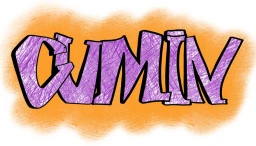Read our summary of the Ofsted subject report on the quality of music education in the schools inspected in England.
For each year of funding, Arts Council England requires Music Hubs to complete an annual survey which details participant numbers and characteristics, staffing and board statistics, activities, income and expenditure. This data is presented in a dashboard with accompanying materials.
The initial findings of the first ever UK Musicians’ Census are now available. The results are based on detailed information provided by nearly 6,000 UK musicians, making it the largest ever survey of its kind.
This in-depth case study investigates how the Arcana Strum can enhance access to music making and facilitate progressive and accredited learning for young people with additional needs and disabilities.
This academic journal article explores the benefits of community-based group singing for positive wellbeing through a series of interviews, and creates a series of recommendations for group singing interventions.
This report, commissioned by Britten Pears Arts with support from Suffolk Music Hub and Norfolk & Norwich Festival Bridge, maps Suffolk’s state school music provision in response to the 2022 National Plan for Music Education and finds that music education should hold a similar status to other core curriculum subjects because of its important role in boosting pupils’ wellbeing.
This engaging, practical resource sets out twelve original projects for making music inclusively with children and young people of all ages who have special abilities or needs, including those with profound and multiple learning difficulties, those on the autism spectrum, those who have a vision or hearing impairment, and those with social, emotional, and mental health needs.
As they near the end of two years of funding for CUMIN (the Contemporary Urban Music for Inclusion Network), project leads Pete Dale (University of York) and Pamela Burnard (University of Cambridge) reflect on what has been achieved and what knowledges have arisen, been shared, and generated throughout the project. Their findings platform the work of a range of community music organisations and artists, and call for contemporary music making to be better understood.
This toolkit, produced by World Pencil, is designed for cultural partnerships, specifically place-based partnerships, including Cultural Education Partnerships (CEPs). It will be helpful for organisations thinking about and entering into new partnerships, and planning future strategy.
In this article, Suzanne Hall asks music educators to consider how they can use children’s books in the classroom: ‘Children’s literature in the elementary music classroom promotes imaginative play and contributes to exposure and dramatic arts involvement’.












